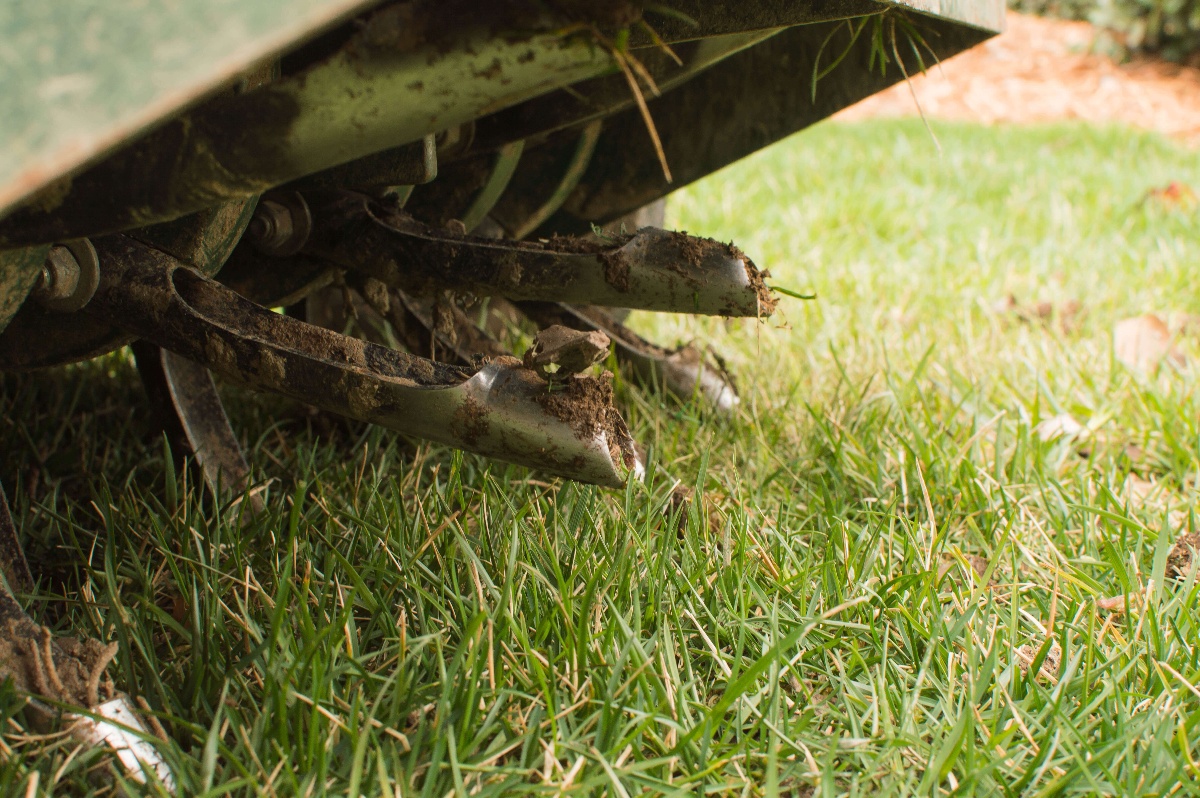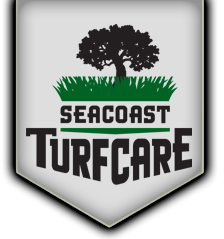
Identify and Control Broadleaf Plantain in New England
Homeowners often tell us that weeds are their #1 source of lawn frustration. Here in New England, we have many different types of common lawn weeds. Amongst the many various types of weeds, broadleaf plantain weeds are a common culprit.
Broadleaf Plantain, or Plantago major, is a perennial broadleaf weed that thrives in compacted soil. It has a fibrous root system and therefore can be difficult to control. Fortunately, with the right approach, you can tackle this tough weed.
In this article, we’ll share everything that you need to know about broadleaf plantain identification and control.
We’ll cover:
What Does Lawn Plantain Weed Look Like?
How to Get Rid of Broadleaf Plantain?
Preventing Weeds With a Healthy Lawn
Broadleaf Plantain Control in New England
Partnering with Seacoast Turf Care
What Does Lawn Plantain Weed Look Like?
Broadleaf plantain is fairly recognizable by its oval and egg-shaped leaves. The dark-green leaves are waxy and grow in a circular arrangement, close to the ground. They are usually between 2 and 7 inches long with prominent veins.
Tall stalks will eventually rise from the center of the circular leaves and produce tiny green flowers.
This perennial is a summertime weed that will typically emerge when it’s hot and last through the fall season.
Broadleaf plantain weeds are known to thrive in compacted soil, which might be indicative of a greater problem.
How to Get Rid of Broadleaf Plantain?
Broadleaf plantain weeds can typically be controlled with a broadleaf weed product. However, because of its fibrous root system, targeted spot treatments and repeated applications might be necessary.
As we mentioned, broadleaf plantain weeds tend to thrive in compacted soil. For this reason, you’ll also want to address the fact that your soil health might be a big part of the issue. A service like lawn aeration can go a long way in breaking up that soil compaction.
Due to our clay-like soils in this region of New England, lawns here can become easily compacted.
But when you aerate the lawn, you break up the soil and help your lawn to breathe. The deposited cores of soil (left behind after they’re pulled) also contribute to this as they decompose and introduce important microorganisms into the soil. This also plays a role in helping create looser, healthier soil that is better-suited for desired grass to grow in.
Preventing Weeds With a Healthy Lawn
While people often think about weed control in terms of products used to control weeds, in reality, there’s more to it than that. Ultimately, you want to promote a healthy lawn that grows thick grass as this will start to choke weeds out naturally.
The truth is, lawn invaders like broadleaf plantain weeds tend to perform better in lawns where healthy grass struggles to grow. That might mean a lawn with compacted soil or even an issue with soil pH levels..jpg?width=1800&height=1350&name=bare%20spots%20in%20lawn%203%20(1).jpg)
A healthy lawn is best-achieved with a well-rounded lawn care program that includes not only a weed control strategy but also services like fertilization and lawn aeration. Over time, as your grass grows thicker and healthier, you’ll see the grass choke out most of the weeds on its own.
Broadleaf Plantain Control in New England
Of course, there’s no doubt that a strong weed control strategy is also critical.
Because there are many different types of weeds that grow here in the Seacoast region, you need to make sure your approach is varied. That can mean different weed control products (even some specialty products) for different weeds.
The time of the year also has an impact on the best approach to weed control in New England. Different types of weeds are going to thrive at different times of the year. As such, it’s important that you are not just taking a blanket approach to lawn care.
To make sure that you are effectively covered, we recommend partnering with professional lawn care in Southern NH, Northeastern Massachusetts, and Southern Maine.
When you partner with a lawn care professional, you’re also getting those vital services that go hand-in-hand with weed control. Services like fertilization and aeration also help reduce weed growth since a healthy lawn will start to choke out invaders.
Partnering with Seacoast Turf Care
Seacoast Turf Care takes New England weeds seriously. We provide lawn care services in Southern NH, Southern Maine, and Northeastern Massachusetts. We know lawn weeds are often one of the biggest sources of frustration for homeowners. We take a science-based approach to all of our lawn care services. That includes promoting a thick and healthy lawn that is going to start to naturally choke out weeds on its own.
In time, the healthier your lawn is, the fewer weed control products you’ll need to keep weeds out. Many New England weeds struggle to creep into a thick lawn! That means when you partner with us, you’ll be able to let go of your weedy worries and simply get back to enjoying your lawn to the fullest.
Ready to be where the grass is greener, healthier, and free from weeds? Get lawn care pricing for your Southern NH, ME, or MA lawn.
Image Sources: broadleaf plantain, plantago major



